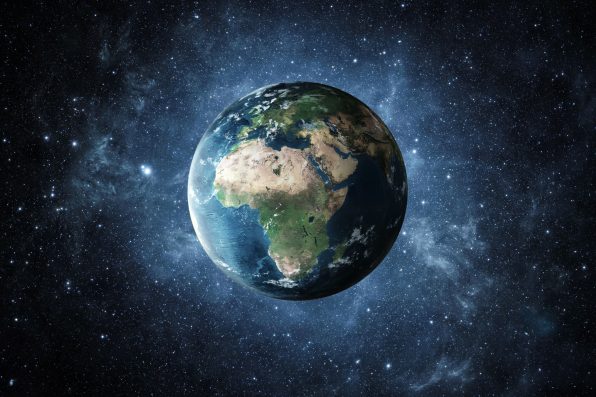A Frozen, Desolate World Found 4,000 Light-Years Away From Earth May Show What Could Happen To Our Own Planet When The Sun Finally Burns Out

A new planetary system was discovered about 4,000 light-years away from our own. The findings may provide answers as to what will happen to Earth when the sun finally burns out.
In the newfound system, a frozen, desolate world similar to Earth was orbiting the faint remnant of a star much like the sun.
The Earth-like planet circled a white dwarf star at a distance about twice that of Earth’s current orbit around the sun.
The discovery was made in 2020 using a technique called gravitational microlensing. It allowed astronomers to detect the brief brightening of a faraway star.
The star was magnified significantly by the gravity of a planetary system that consisted of an Earth-sized planet, a star about half the size of the sun, and a brown dwarf star about 17 times the size of Jupiter. A brown dwarf star is also known as a failed star.
The system has been dubbed KMT-2020-BLG-0414. A former doctoral student at the University of California-Berkeley named Keming Zhang and his colleagues used the Keck II telescope in Hawaii to take a closer look at the planetary system.
“Our conclusions are based on ruling out the alternative scenarios since a normal star would have been easily seen,” said Zhang. “Because the lens is both dark and low mass, we concluded that it can only be a white dwarf.”
The star at the center of the system had already lived its life, transformed into a red giant, and finally settled as a white dwarf. The system also demonstrates what will happen to Earth in the future as the sun ages.
Sometime in about a billion years, the sun will start to swell and possibly swallow up the inner planets. It might force the outer planets, including Earth, into wider orbits.

rangizzz – stock.adobe.com – illustrative purposes only
“We do not currently have a consensus about whether Earth could avoid being engulfed by the giant red sun in six billion years,” Zhang said.
“In any case, planet Earth will only be habitable for around another billion years, at which point Earth’s oceans would be vaporized by runaway greenhouse effect—long before the risk of getting swallowed by the red giant.”
Our planet’s fate is not totally clear, but the KMT-2020-BLG-0414 system provides evidence that worlds similar in size to Earth can survive the destructive nature of their dying stars.
Zhang notes that even if Earth does not survive the sun’s transition into a red giant, the outer solar system still might become a habitable zone, particularly around Jupiter and Saturn’s orbit.
Many of their moons could turn into ocean planets, where humanity might be able to flourish. The results of this study highlight the potential that gravitational microlensing has in discovering other exotic, hard-to-find planetary systems.
The study was published in the journal Nature Astronomy.
Sign up for Chip Chick’s newsletter and get stories like this delivered to your inbox.
More About:News





